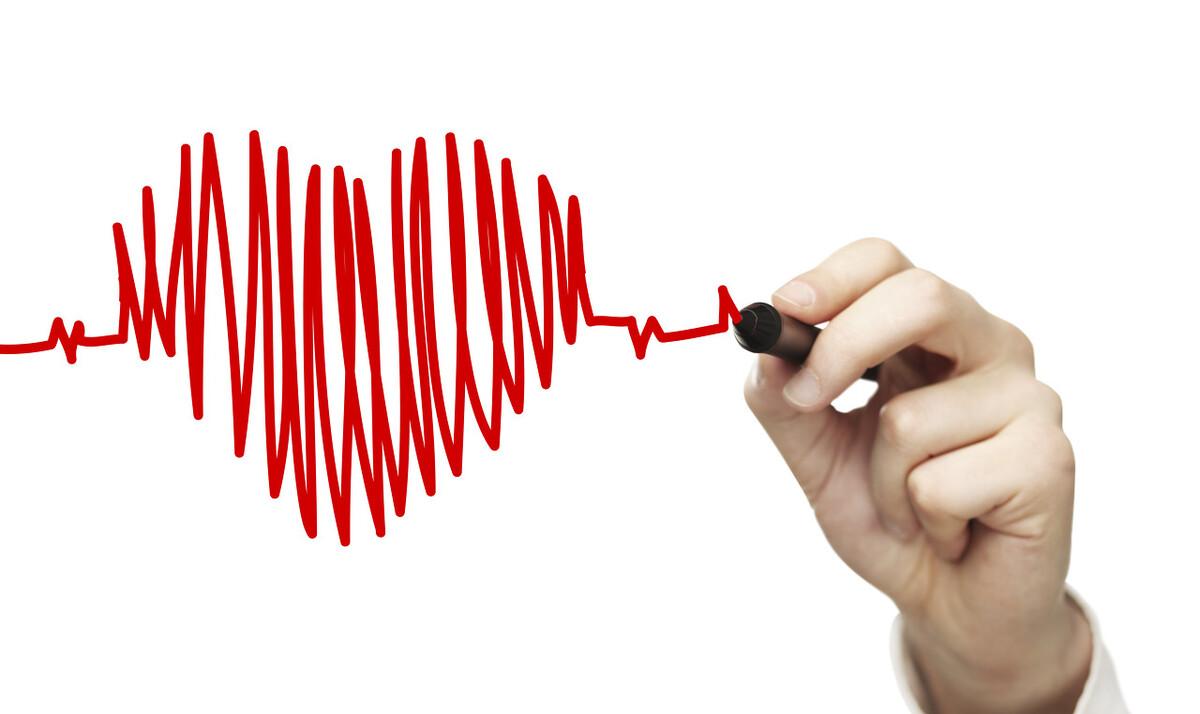Under normal circumstances, adults beat 60 to 100 beats per minute, and their heart rate increases after strenuous exercise, excessive nervousness, overeating, and staying in a hot environment. There are certain doubts about the speed of the heartbeat, whether the heartbeat is faster or slower, you may wish to take stock of the connection between the rapid heartbeat and the life span.

1, the heart beat fast
In a quiet and awake state, infants and young children have a heartbeat of 120 to 140 beats per minute, school-age children reach 80 to 90 beats per minute, and adults have about 70 to 80 beats per minute. Heartbeat is susceptible to a variety of factors, including illness, diet, and mood. In a quiet state, the speed of the heartbeat reflects the health of the heart, and the heartbeat is normal at 60 to 100 beats per minute.
If tachycardia is judged to be greater than 100 beats, atrial fibrillation and supraventricular tachycardia are highly likely to occur at >150 beats per minute, often with unstable heartbeat rhythms. There are two causes of tachycardia, one is physiological factors such as anxiety and agitation, smoking and alcoholism, heavy physical labor and changes in position, which do not require special treatment;
One is pathological factors, common in fever, hyperthyroidism, infection, hypoxia and anemia, and organic heart disease can also lead to tachycardia, such as acute myocardial infarction, myocarditis, hypertension and heart failure. Tachycardia and organic cardiovascular diseases are easy to induce myocardial infarction, angina and cerebrovascular accidents, so they should be paid great attention to.
Because the heart runs at high speed for a long time, it is necessary to complete contraction and relaxation in a short period of time, which can easily cause a decrease in myocardial oxygen supply, resulting in insufficient blood supply to the heart and myocardial ischemia, and at the same time, it will also increase myocardial oxygen consumption, resulting in heart enlargement and heart failure, so the rapid heartbeat rate can shorten life.
2. Slow heartbeat
Studies have found that slow heart rate is good for healthy longevity, but it should not be less than 60 beats per minute. If the heartbeat per minute is less than 60 times is judged to be bradycardia, severe heartbeat speed is too slow can slow down the blood flow rate, increase blood viscosity, make the whole body organs ischemic and hypoxia, thereby inducing adverse reactions, such as chest tightness and shortness of breath, general weakness and dizziness, etc., and even cause syncope and angina, which can be life-threatening in severe cases.
In addition to athletes, sleep processes, and elderly bradycardia, there are two causes of bradycardia, one is organic diseases such as hypothyroidism, atrioventricular block, myocarditis, and acute myocardial infarction; the other is drug factors, especially amiodarone and digoxin, etc., asymptomatic sinus slowing of heart rate without special treatment.
Tips
After the above understanding, rapid heartbeat will shorten life, if it is pathological tachycardia, it is necessary to actively cooperate with doctor treatment; if it is physiological factors, it should actively improve the lifestyle, away from spicy and irritating and high-sugar and high-salt foods, alcohol and caffeine, so as not to stimulate nerve excitement, thereby accelerating the heartbeat rate.
When there is no other symptom of tachycardia, moderate exercise should be maintained, such as jumping aerobics, cycling and walking, etc., to ensure that the weekly exercise amount reaches more than 150 minutes, before and after exercise needs to monitor the heart rate, the heart rate can not reach 170 minus age, otherwise it will aggravate the disease. Many medications can speed up the heart rate, such as antidepressants and cold medicines, so it is necessary to consult a doctor before taking the drug.
##健康明星计划 #